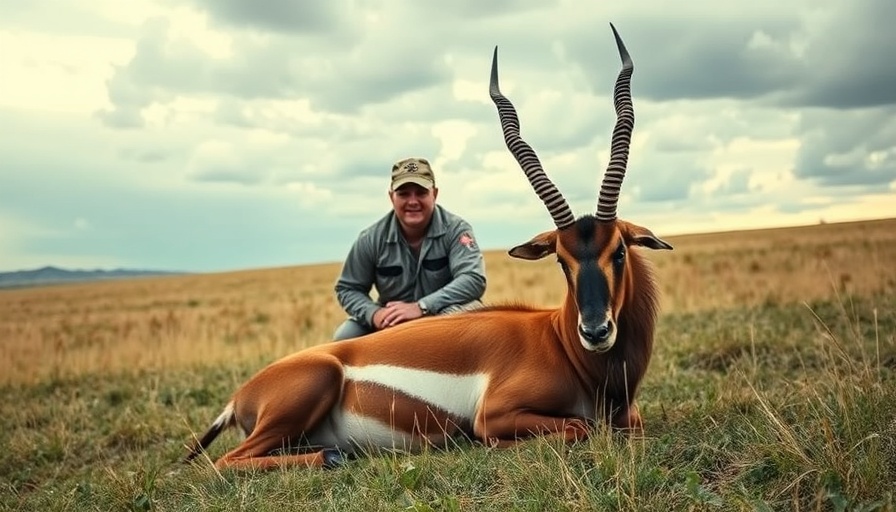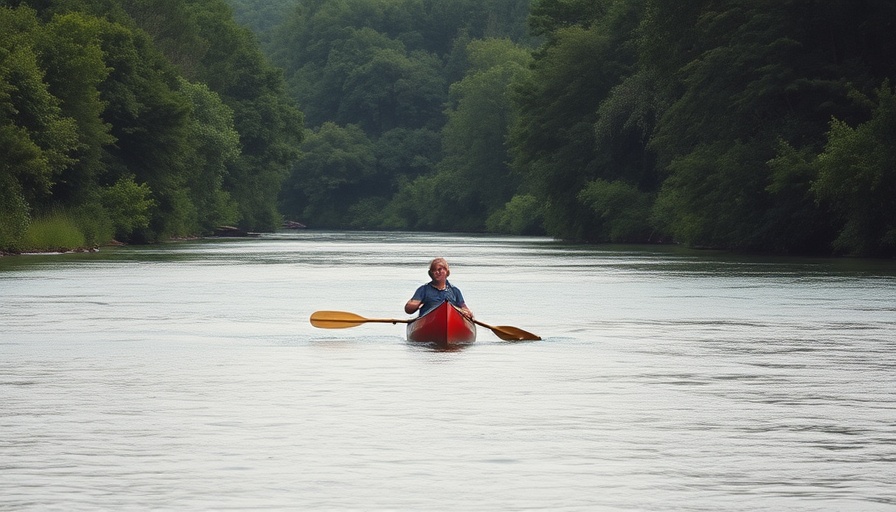
Understanding Hunting Ethics in Our Community
The hunting community has been facing scrutiny recently, particularly surrounding ethical practices and species classifications. Former NFL star Jay Cutler has recently found himself at the center of controversy when accusations arose regarding his hunting of a sable antelope, a noble species often misidentified due to its visual similarities with others. Misunderstandings like these reflect a broader issue in our society regarding hunting practices and ethics. With outdoor enthusiasts and critics alike, engaging in a constructive conversation about hunting can pave the way for improved understanding and appreciation of wildlife conservation.
Why Accurate Species Identification Matters
Mislabeling a species not only leads to misinformation but can also adversely affect regulations and conservation efforts. Sable antelope, known for their striking appearance and majestic nature, are vital to the ecosystems they inhabit. A lack of understanding, particularly by critics in today’s media landscape, highlights a knowledge gap that can misinform the public and erode trust within the hunting community. Educating ourselves and others about species differences can help foster respectful discourse and mitigate unwarranted backlash against individuals like Cutler, who participate in hunting as a lifestyle choice.
The Intersection of Culture and Hunting
Hunting is part of many cultures around the world, often intertwining with traditions, community bonding, and conservation efforts. For many in the MidSouth, hunting represents more than just a sport—it embodies a lifestyle choice that connects individuals to nature. By understanding the cultural significance of hunting, we can better appreciate the practices and values of those who participate in it. This not only brings us closer as a community but also fosters respect for the wildlife that sustains these practices.
Addressing Common Misconceptions
Many people, particularly those unfamiliar with hunting, hold misconceptions about its purpose and ethics. For example, hunting is often depicted as a ruthless pursuit, yet, for many, it is a means of ensuring sustainable populations and contributes to local economies. Hunters often engage in efforts to manage wildlife populations responsibly, preventing overpopulation while enhancing biodiversity. Understanding the realities of hunting can help alleviate concerns and promote educated discussions regarding the practice.
Encouraging Responsibility and Ethical Hunting
As members of the MidSouth community, it’s crucial to engage in a responsible conversation surrounding hunting. Ethical hunting practices are paramount for the conservation of wildlife. This includes knowing how to identify species accurately, understanding local and federal regulations, and recognizing the impact that hunting has on ecosystems. A heightened sense of awareness and responsibility surrounding these practices can foster a healthier relationship between hunters, wildlife, and the broader community.
Steps Forward: Creating Shared Understandings
To foster a supportive environment around hunting, it’s imperative to strengthen community-driven initiatives that promote education and understanding of hunting ethics. Programs that involve local wildlife organizations can help bridge gaps in knowledge, allowing for dialogue and education. Workshops, seminars, or local events focused on wildlife conservation and responsible hunting can create a more informed community that appreciates nature and encourages sustainable practices.
Final Thoughts: Building a Supportive Community
As conversations surrounding hunting evolve, it's essential to contribute positively to the narrative. By supporting ethical practices, encouraging accurate species identification, and engaging in constructive discussions, the MidSouth community can better appreciate both hunting and the wildlife it involves. As you reflect on these discussions, consider exploring ways to engage with local wildlife conservation efforts, support education initiatives, or participate in community events that celebrate responsible hunting and wildlife management.
Join the conversation about ethical hunting practices and consider how you can contribute to a more informed community. Together, we can build respect, understanding, and appreciation for the rich traditions of hunting while promoting wildlife conservation efforts that benefit us all.
 Add Row
Add Row  Add
Add 



 Add Row
Add Row  Add
Add 
Write A Comment